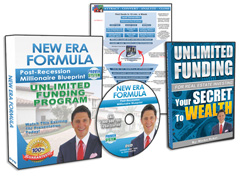
 Experienced real estate investors often muse about operating their business to save money including how they may be taxed and how much tax they must pay. Knowing how to benefit from 1031 Exchanges immediately come to mind. What they are exactly and why those in real estate should be familiar with them and why is what this blog is about. A 1031 Exchange is all about legally deferring your capital gains exposure and minimizing your tax bite as you profit from your real estate success.
Experienced real estate investors often muse about operating their business to save money including how they may be taxed and how much tax they must pay. Knowing how to benefit from 1031 Exchanges immediately come to mind. What they are exactly and why those in real estate should be familiar with them and why is what this blog is about. A 1031 Exchange is all about legally deferring your capital gains exposure and minimizing your tax bite as you profit from your real estate success.
In brief, a 1031 Exchange is a transaction in which a taxpayer is allowed to exchange one investment property for another by deferring the tax consequences of a sale. There are guidelines and timelines to consider, essentials to note, and misconceptions to avoid.
The first essential is the operative rollover provision. The old property to be sold and the new property to be bought must be of like kind. The single most common misconception occurs here. Like kind relates to the use of the properties. Many investors incorrectly assume that they must exchange the very same type of property such as one multifamily for another. What it actually means is quite different. So long as you are selling and acquiring real estate within the US, the real property exchanges are 1031 eligible. You may readily cross state lines from one transaction to another. All real property is like kind to any other real property. Sell your condo rental and exchange it for an office building or raw land. You can even sell one property and subsequently do a multiple property replacement exchange. You may sell multiple properties and exchange into one larger property. You may buy or sell any number of properties in an exchange.
It is essential to note that property strictly held for resale does not qualify as an exchange. Investors who flip properties cannot elect this tax strategy because their intent is to resell and not hold for investment. The key is the intent of the seller. Primary residences can never be exchange worthy and there are limitations as to transactions as to family relations if such may apply.
It must be emphasized that tax deferred exchanges are never allowed for real estate held only for personal use. A 1031 Exchange is for investment only. This prohibition means that you cannot sell your primary residence then buy an investment property nor sell an investment property and then acquire a new primary residence and benefit under this tax code provision. Do be aware there is another tax code provision that does allow you to sell your primary residence and avoid the capital taxes otherwise that may come due. As the devil is always in the details, always be due diligent and you may wish to confer with competent counsel or a CPA before you act.
There are strict timelines to follow. No exceptions. If the investor sells his or her property, property of equal or greater value must be identified within 45 days of such sale and once identified has 180 days from the sale to acquire the identified property.
Investors are not permitted to have access to the sale proceeds between the sale of the old property and the new purchase. Taxpayers must use an independent third party to handle the exchange. A common misconception is to incorrectly assume your attorney or CPA can be that intermediary. The qualified intermediary chosen cannot be someone with whom you have a family relationship with or have had business dealings within the preceding two years.
1031 requires that the taxpayer listed as the title holder must be the title holder on the new acquisition. In a given scenario, that may be problematic. If an investor husband is the title holder and remarries, the best way to proceed may be to quit claim title to the new husband and wife then proceed to sell the old property and acquire the new.
In order to defer 100% of the gain on the sale of the older property, the new property must be of equal or greater value. Deducting expenses and accounting for closing costs can be factored in. So may unlimited capital improvements if occurring within the 180 day timeline. Investors can spend up to 15% of the acquisition cost on personal property as well. There are other provisions not covered here.
In summation, each 1031 Exchange is as unique unto itself as is each investor seller. It is always prudent to be due diligent with your good business practices. Know what you are doing before you do it and with a 1031 Exchange, if you feel it is appropriate to consider, consult with an experienced attorney or CPA before you act.
Request FREE Funding Kit and Discover How To Legally Bypass Banks And Gain Direct Access To "No-Credit-Required" Funding You Can Use To Achieve Your Financial Freedom... Start Now!












